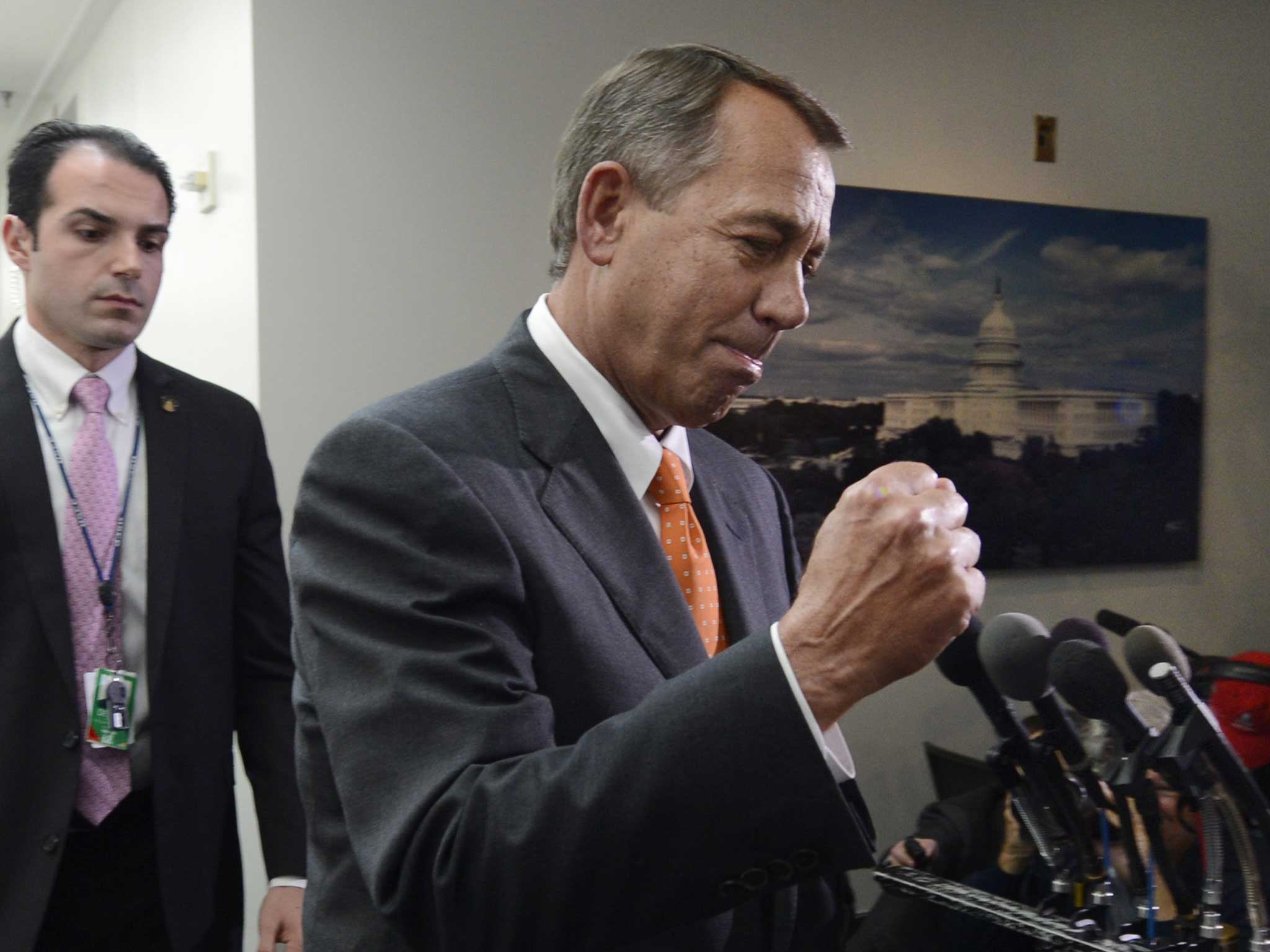US midterms: What are they – and why are they so important?
The USA holds elections every two years, and they could define the last days of Obama's presidency

The midterm elections in the United States fall on Tuesday 4 November.
What are the midterm elections?
While every US president is elected for a four-year term, members of the House of Representatives, the lower chamber of Congress, are elected for only two years at a time. Thus, every presidential term is punctuated at the two-year mark by a “midterm” election for all 435 seats in the House.
However, it isn’t only members of the House that Americans will be selecting. Voters in many states will also be choosing between candidates for seats in the US Senate. The term of a US senator is six years, which means that every other year – whether it is a full presidential election or a midterm election – roughly a third of the seats in the Senate are up for grabs.
Anything else?
Yes. At the same time, many states will also be picking their governors, who serve four years. Those states with gubernatorial races this November will also be holding contests for all the other state-wide officers who serve underneath the governor, such as secretary of state, attorney general and lieutenant general. Voters are also being asked to elect members of their state legislatures, as well as other officers like state and county judges.
Any election, whether presidential or midterm, is also a chance for states to decide so-called ballot initiatives. These are popular referendums that can be put on the ballot on election day, assuming enough signatures have been gathered to permit this. Issues that voters might be asked to decide range from changes to their state’s constitution, for instance on banning gay marriage or permitting recreational marijuana use, to whether to approve a tax increase.

Why do they matter?
The battle between the two main parties – the Democrats and the Republicans – can be almost as fierce in the midterms as in a presidential election, because what is at stake is control of the second arm of government, the "legislature", ie both houses of the US Congress. The party that owns the White House always wants majorities in both the Senate and the House of Representatives, so the president’s legislative agenda has a chance of actually being voted through.
In general, a midterm election is often seen as a referendum on the performance of whoever won the presidential race two years previously. More often than not, the faded promises of a White House campaign and the onset of reality after a president has taken office for either a first or second term allows popular dissatisfaction to set in, and can mean a clobbering for the president’s party.
A typical example was in 2010. After his historic election as America’s first black president in 2008, Barack Obama received what he called a “shellacking” from voters two years later. The clear majority he had enjoyed in both halves of Congress for his two years vanished after the Republicans harnessed the popularity of the Tea Party to seize back the majority in the House of Representatives. The Senate remained Democrat-led.
What could the impact be?
What matters most is how things shake up in the Senate. If the Republicans emerge as the majority party in the Senate, the impact would be considerable, because it would then have control of both chambers of Congress and allow the legislature to become an even greater force in Washington than it is already.

What does this mean for Obama?
A solidly Republican Congress would make any advancement of Mr Obama’s legislative agenda almost impossible. The only way of getting new laws passed would be if he could persuade his Republican opponents to get on board. However, the record of cooperation between him and the Republicans has not been good. Victims of gridlock in Washington could include the long-delayed effort to pass comprehensive immigration reform.
Conversely, the Republicans would be liberated to push forward their own agenda of tax and spending cuts, for example, with assured majorities in both halves of Congress. Shutting down government or even attempting to impeach the president would be among the possibilities that might tempt them. Mr Obama will almost always have the power to veto whatever laws Congress might pass, but no president wants to be remembered foremost as a veto president.
Lastly, a Republican majority in the US Senate could become critical if a seat becomes vacant in the US Supreme Court. Ruth Bader Ginsberg, a long-term liberal voice among the justices, is one who may retire in the next two years. Mr Obama’s nomination to replace her would require Senate confirmation - which they might not grant to another similarly liberal judge.
Join our commenting forum
Join thought-provoking conversations, follow other Independent readers and see their replies
Comments
Bookmark popover
Removed from bookmarks